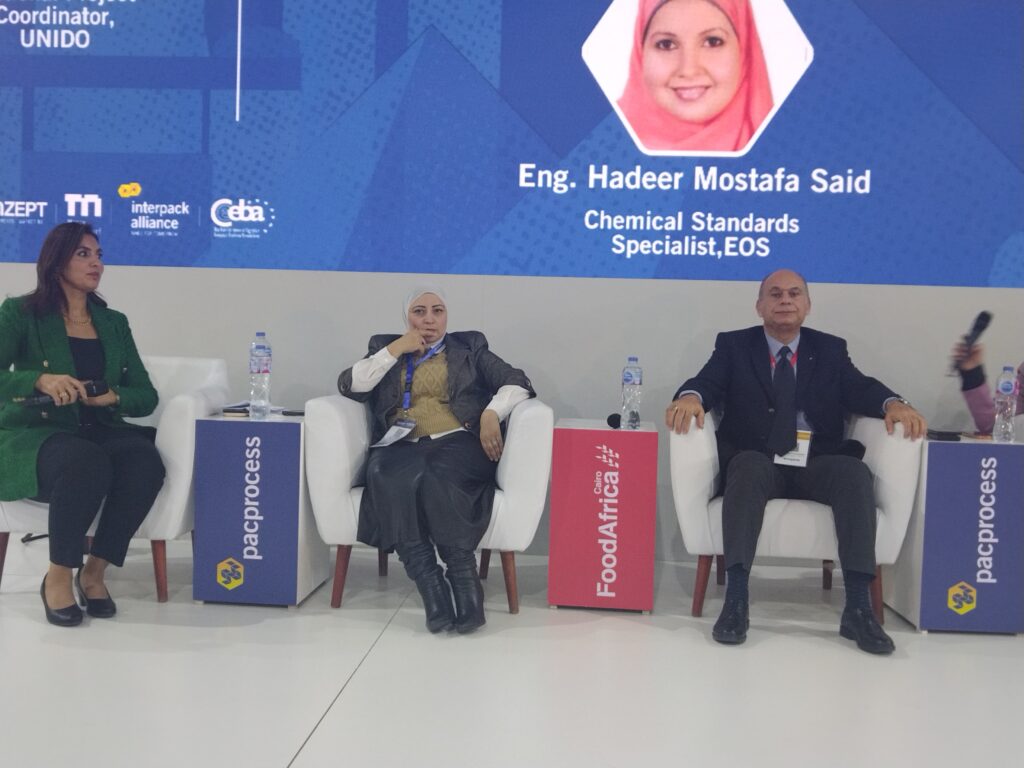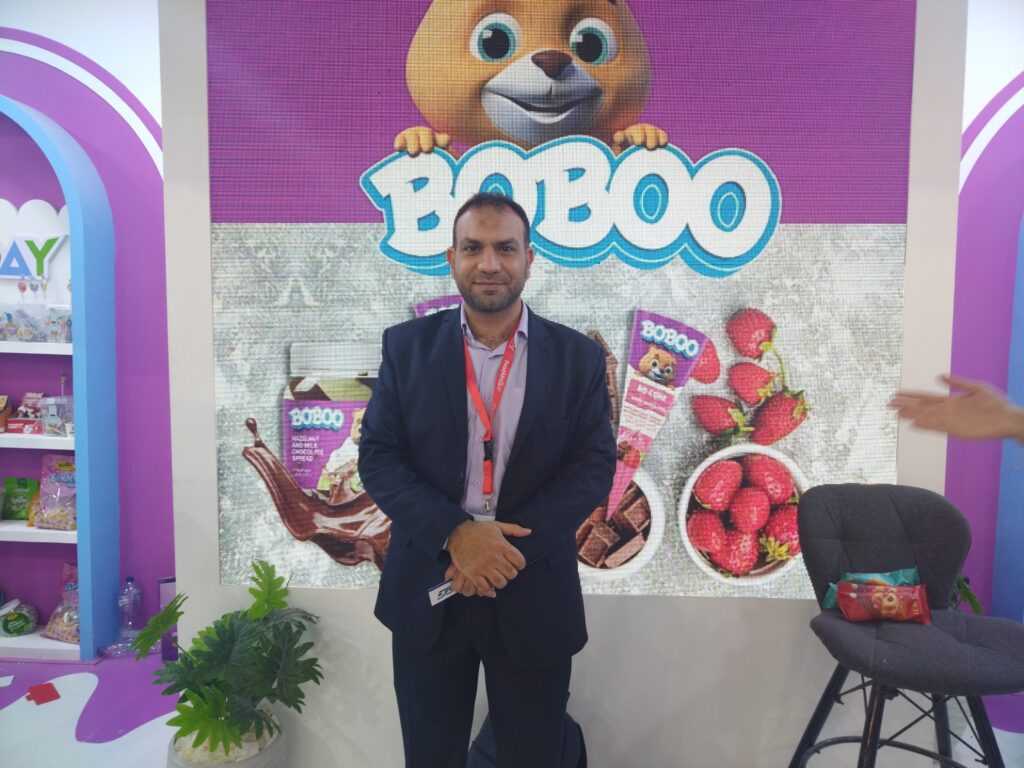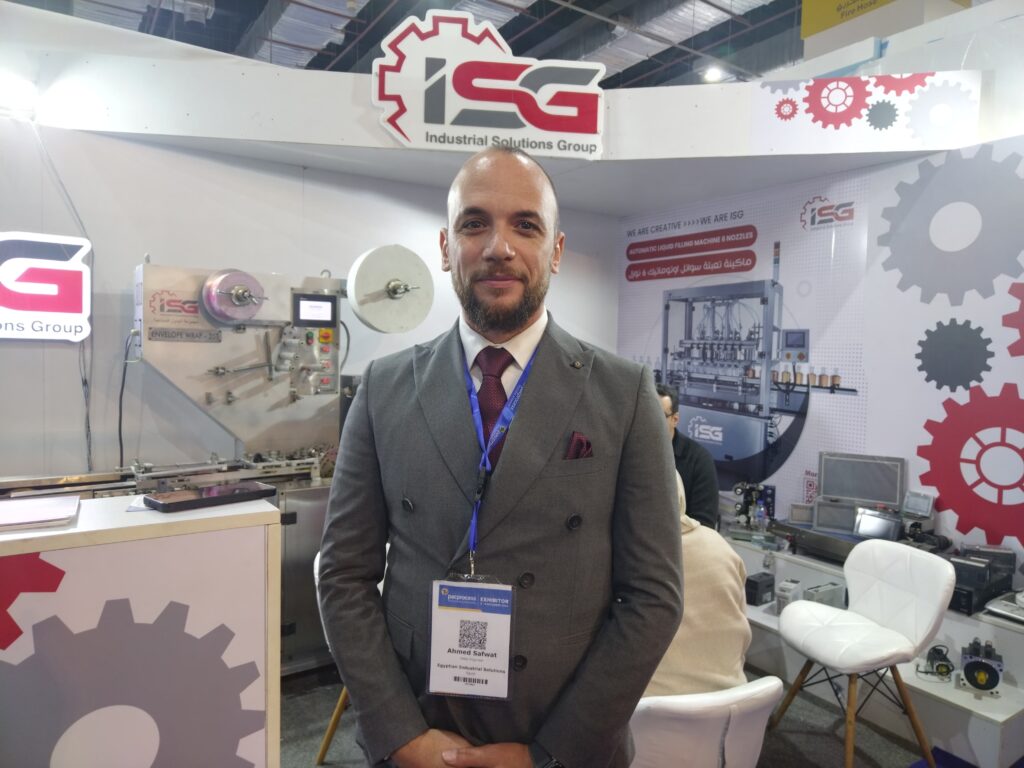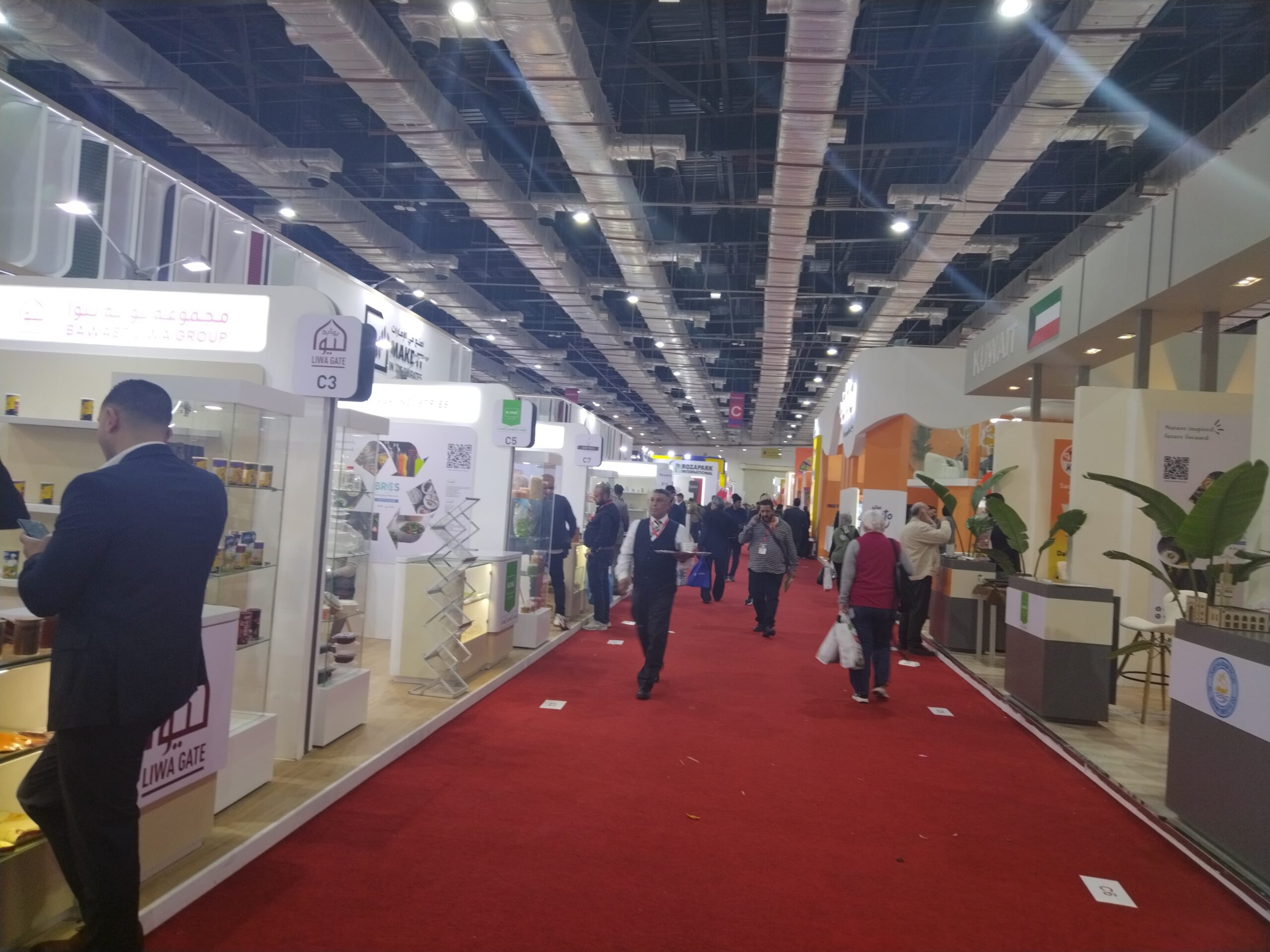Food & Climate
The 9th edition of Food Africa International Exhibition continues its activities for the second day in Egypt, where discussions were held on the circular economy and recycling of plastic products, and many companies displayed their products, and some of them explained to the “Food & Climate” platform how they affect and are affected by climate change phenomena.
Food Africa 2024, which started yesterday and will continues until tomorrow (From December 3rd to 5th, 2024), would host 910 exhibitors, is expected to receive about 27,000 visitors from across 32 countries.
Several discussion panels were held, one of which participants discussed the single-use plastic, and alternatives that can contribute to the circular economy. The head of the plastics unit at the Ministry of Environment, Dr. Yusra Abdel Aziz, said that the plastic crisis is more dangerous and goes beyond just a turtle suffocating in a plastic bag, as it has become a major component of the food supply chain, meaning that it surrounds our bodies, noting that the most dangerous type of plastic is that which is used once, as it leads to huge amounts of waste from this material.
While the senior advisor to the Plastics Technology Center, Dr. Ahmed Abdelkader, pointed out that there are types of plastic that are biodegradable, and some of them turn into fertilizer for the soil.

A tour of the Food Africa exhibition
A number of exhibitors at Food Africa 2024 revealed the problems of climate change, as the Vice President of the Export Center, Faten Fouad, explained how climate change, especially in the last two years, has affected production and exports.
She said that the extreme heat in the last orange season negatively affected production, and the unseasonable rains spoiled Egypt’s onion production, and the same applies to dates, “the extreme heat makes the dates dry up before they ripen, which means the crop is spoiled.”
The center works in the production and export of many fruits and vegetables, and Fouad indicated in her interview with the “Food & Climate” platform that the change in weather conditions in the recent period has reduced production by about 30%.
The Director of Export Logistics at the “Ayman Shaheen” Group, Ahmed Mossad, said that his company, which manufactures some types of sweets such as children’s lollipops and barley drinks through factories, relies on natural colors, and does not use artificial colors except in the narrowest limits and in a very limited percentage, because a large percentage of the products are intended for children.
He added in his interview with the “Food & Climate” platform that the products are manufactured semi-manually, which is an expertise that the company brought to Egypt from a Polish company, so the production process is characterized by labor intensity.

Massad pointed out that there is no waste in the company’s factories.
Salt roasting technology
While the General Manager of “Snack” Company, Essam Al-Maghribi, pointed out that a roasting machine, which was mad by his company, operates using a new technology that relies on heating using salt, which provides healthy crisps and reduces the cost of production by a large percentage.
He added that while frying in oil preserves food for only months, the preservation period by roasting in this way reaches 3 months without using preservatives, which means a healthier product.
Ahmed Safwat, Vice President of Sales at Industrial Solutions Company (ISG), said that his company works in packaging machines for foods, whether powder or liquids, in addition to other products, and that climate change has affected the method and materials of manufacturing products. For example, the high temperatures in Egypt have led to the use of new grades of stainless steel in juice tanks, which work to retain colder temperatures.
The company also relied on acrylic doors, which were modified to deal with the unusual heat.

He explained that due to extreme weather factors, the company began packaging machines and equipment when they were brought from abroad.

